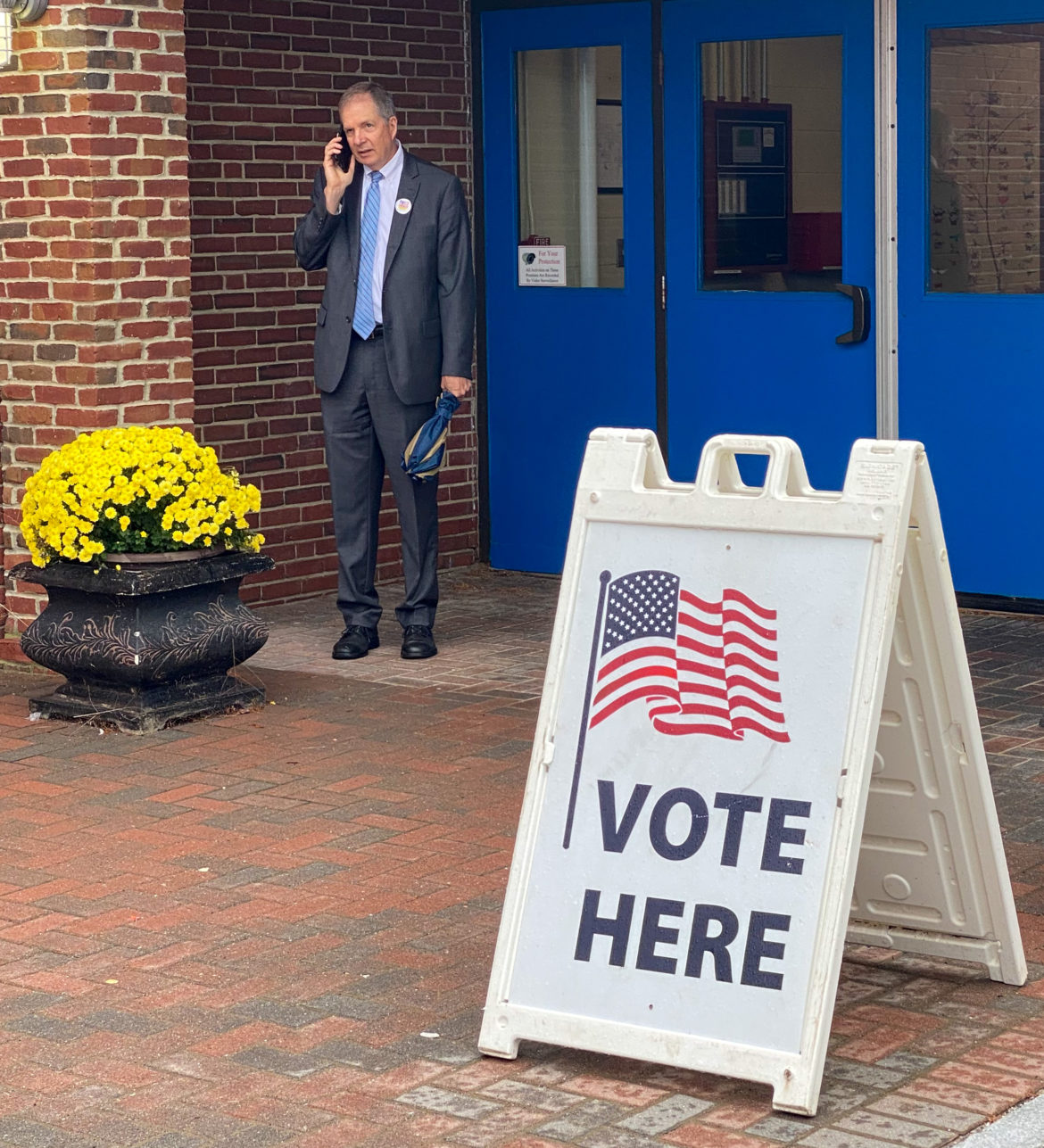By PAULA TRACY, InDepthNH.org
CONCORD – Secretary of State David Scanlan said it will be more work for election workers but his office can administer a measure that has reached consensus among House and Senate negotiators eliminating the voter identification exceptions.
Currently, those who show up at the polls in New Hampshire without identification can still vote but need to sign an affidavit attesting, under penalty, that they are who they say they are and have a right to vote in that location.
Scanlan said House Bill 1370, would set up a system to verify for those without ID with the polling location and through contacts at the Department of Motor Vehicle and within 20 minutes that could occur, or the voter could be given either a verification ballot, similar to what is currently supplied, or a judicial review ballot if they want to go directly to court.
“It’s not unreasonable,” Scanlan said, and it is important for the voters to feel confident that the participants in an election are qualified.
He noted there is another bill that has not yet been signed into law, but passed both the House and Senate, House Bill 1569, which is “more strict” Scanlan said, and first-time voters without documentation would be turned away.
He said the bill requires his office to work with other state agencies that can confirm domicile which would eliminate those voter identification exceptions.
Scanlan said he attended the committee of conference on the bill Wednesday which was amended by Sen. James Gray, R-Rochester, and before he left they had yet to reach a unanimous consensus vote.
It was then, after a number of conferees were replaced by House and Senate leadership, that they got a unanimous vote.
State Sen. Jeb Bradley, R-Wolfeboro, who is Senate President, replaced Sen. Donna Soucy, D-Manchester with himself while and House Democratic Reps Gerry Ward of Portsmouth and Connie Lane of Concord were replaced by Republican Reps Thomas Walsh of Hooksett and Fred Doucette of Salem.
The bill was opposed by many Democrats and town clerks and other municipal officials concerned it may disenfranchise voters and would be more work.
It would give the Secretary of State’s office $100,000 to set up training for election officials and create a hotline of sorts, which would replace signed affidavits for those who are without documentation and wanting to vote.
The process in the bill will be used for the Sept. 10 primary and the Nov. 5 general election, if signed into law.
Gov. Chris Sununu, an outgoing Republican, said like other voter bills, he would listen to the position of the Secretary of State on any changes.
Scanlan said he has not yet spoken with the governor on the matter but will if it is headed to his desk.
A copy of the bill passed by the Senate is here https://www.gencourt.state.nh.us/bill_status/billinfo.aspx?id=1534&inflect=2
The bill now heads to a full vote in the House and Senate likely on June 13.





